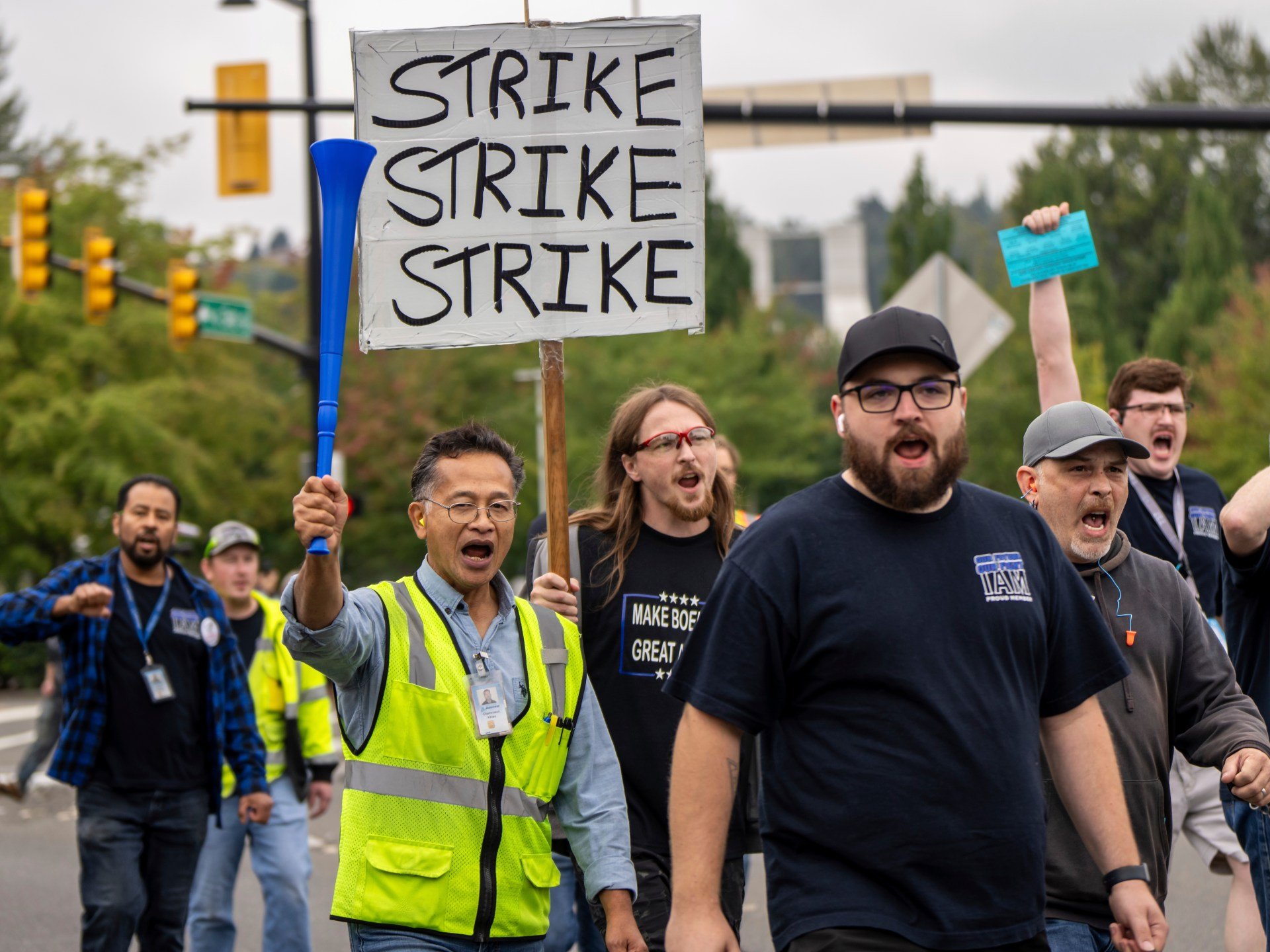- cross-posted to:
- workreform
- cross-posted to:
- workreform
The article:
Boeing’s roughly 33,000 factory workers on the West Coast of the United States have voted overwhelmingly to strike in the latest blow for the beleaguered aircraft giant.
Machinists at the company’s factories in Seattle and Portland, Oregon on Thursday voted to walk off the job from midnight after rejecting management’s latest offer for better pay and conditions.
The International Association of Machinists and Aerospace Workers (IAM) said that 94.6 percent of its members voted to reject the contract and 96 percent backed a strike.
Boeing’s offer would have raised pay by 25 percent over four years, reduced workers’ share of healthcare costs and increased the company’s retirement contributions.
The aircraft maker’s offer also included a commitment to build its next aircraft at its facilities in greater Seattle after the company angered union members by moving production of the 787 Dreamliner to a non-unionised plant in South Carolina.
Workers had demanded a 40 percent wage rise, the restoration of a pension scheme that was axed a decade ago, and a stronger guarantee that future production would not be moved out of the Seattle region.
Jon Holden, IAM’s lead negotiator in the contract talks, said workers had spoken “loud and clear”.
“This is about respect, this is about addressing the past, and this is about fighting for our future,” Holden said.
“We strike at midnight.”
The strike, the first by Boeing workers since 2008, puts a halt to production of the best-selling 737 MAX and other aircraft as the company grapples with output delays, heavy financial losses and intense scrutiny of its safety record.
It also comes just weeks after new Boeing CEO Kelly Ortberg took the helm of the company with a pledge to “reset” the company’s relations with the union.
Ortberg had on Wednesday urged workers to vote against a strike, warning it would “put our shared recovery in jeopardy, further eroding trust with our customers and hurting our ability to determine our future together”.
Boeing did not respond immediately to a request for comment.
Adam Smith, a Democratic Party member of the House of Representatives representing Washington State, urged the two sides to return to the negotiating table.
“Across corporate America, so much of the wealth has wound up in the hands of so few people,” Smith said in a statement.
“Large corporations have increasingly prioritised their own profits and shareholders at the expense of workers. It is crucial that Boeing behaves as a responsible steward for its employees, so that every employee at their company is respected with fair wages and working conditions.”



For reference here are inflation rates YOY since 2017:
2017 2.10%
2018 1.90%
2019 2.30%
2020 1.40%
2021 7.00%
2022 6.50%
2023 3.40%
Just to make up for the last three years of inflation they would need +16.9% instantly. Assuming +2% inflation over those 4 years (which is the average but not right now) that means from 2020 to 2028 inflation rose 26.3% so if they started a +25% increase over 4 years this year, the workers would have the same spending power they had in 2020.
Data is from the bureau of labor statistics
That’s the reported inflation by the government markers, but be realistic with yourself.
Since 2017 food prices have gone up more like 65%, houses have gone up 50% (doubled since 2010), mortgage apr rates have tripled, rent has gone up 74%, and gas has gone up by 35%. Used cars and new cars have gone up 40% to 80% as well.
Tying “inflation” to those government markers and claiming that it keeps you at even pace (I’m not accusing you of this) with living is asinine. If you want to buy a house and a car today, you pretty much need to double what you were making in 2017.
Inflation is a basket of goods. Yes, you can pick out specific things that are rising faster than overall inflation, but people don’t buy just those.
There have been alternative means of measuring inflation, such as the old Billion Prices Project (stopped in 2016) or the Penn State ACY index:
https://sites.psu.edu/inflation/
In practice, they tend to track CPI fairly close.